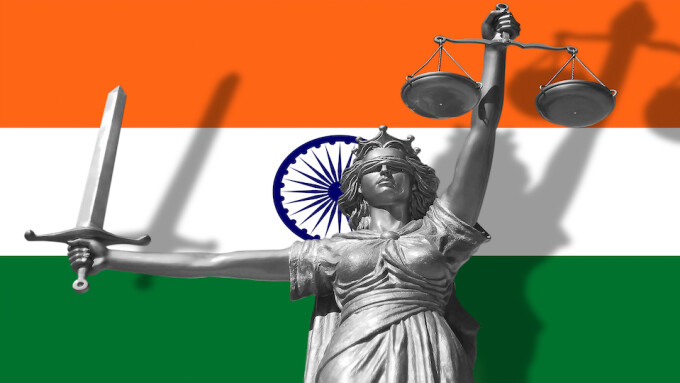NEW DELHI — The Supreme Court of India has rejected a petition seeking to codify an alleged link between viewing internet pornography and committing crimes such as rape and child sexual abuse.
“Seeking a judicial declaration from the Supreme Court that porn on the Internet has led to child sex crimes would be equal to giving a go-ahead to online surveillance,” cautioned the justices in their opinion after reviewing the petition, Indian newspaper The Hindu reported.
The top Indian tribunal stated that “child sex abuse is a crime by itself” and noted that although police can investigate specific cases to determine “whether or not viewing of pornography had triggered the crime,” such findings would apply only to each individual case.
“So your final goal is that such material should not uploaded ... What you are advocating may be surveillance and collection of data,” the court told Nalin Kohli, the petitioner-in-person and a prominent figure in the BJP, India's right-wing ruling party.
The court expressed concern about where the type of Internet surveillance being proposed might lead.
"This is a tiger if it gets loose, problem is at what point we control it… The issue of the link between viewing pornography and crime is individual case specific," Chief Justice Lalit opined.
Influence of U.S. Jurisprudence on India's Supreme Court
Justice S. Ravindra Bhat cited a 1990s U.S. Supreme Court case dealing “with a question of banning the Internet to a certain class in order not to give them access to porn,” The Hindu reported.
Bhat quoted former U.S. Supreme Court Justice Anthony Kennedy as saying, "We cannot set the house on fire to roast the pig," in turn a reference to a much-cited 1957 case, Butler v. Michigan.
According to free-speech scholar Clay Calvert, Justice Felix Frankfurter’s opinion in the Butler decision established “a pivotal principle in First Amendment jurisprudence — that the government cannot, in the name of shielding minors from supposedly objectionable content, implement a blanket ban on that content and thereby reduce the scope of speech available to consenting adults.”
Kohli initially “sought a direction to the Bureau of Police Research and Development (BPRD) to study the link between free access to internet pornography and child sexual abuse cases as well as rape,” The Hindu noted.
Kohli withdrew his petition following the Supreme Court rebuke.






